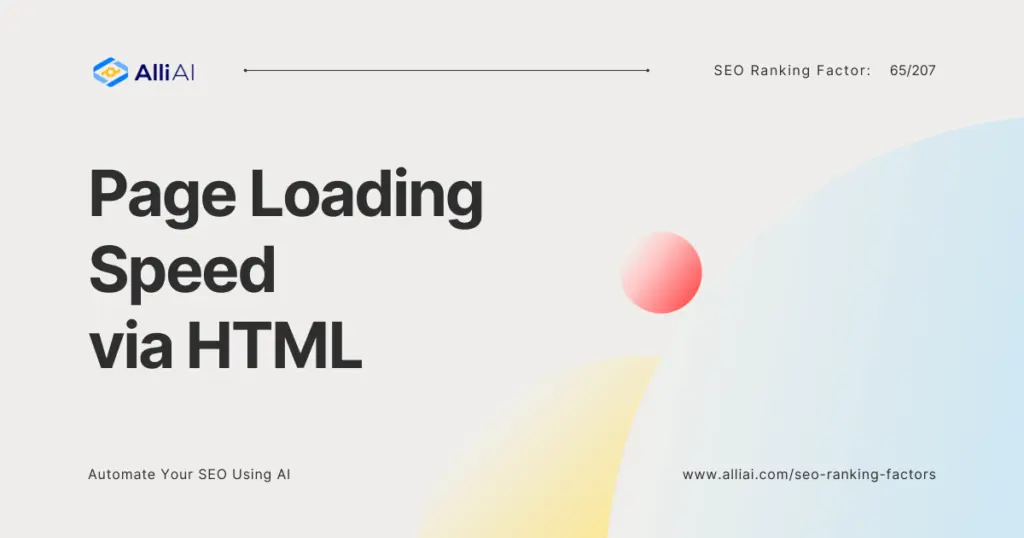Understanding Page Loading Speed as a Ranking Factor
Page loading speed refers to the time it takes for a webpage to fully display its content. Imagine you’re at a fast-food restaurant. The quicker the service, the happier you are with your experience. Similarly, in the digital world, faster web pages lead to a better user experience.
Why is Page Loading Speed Important in SEO?
Search engines aim to provide users with the best possible results for their queries. A site that loads quickly improves user experience, making it a significant factor in search engine optimization (SEO). Faster websites not only rank better but also lead to higher user engagement, retention, and conversion rates.
How Page Loading Speed Affects SEO
A slow-loading webpage could significantly harm your website’s visibility and performance on search engine result pages (SERPs). According to Google, as page load time goes from one to five seconds, the probability of bounce increases by 90%. This demonstrates the critical link between speedy page loads and maintaining visitor interest.
Relevant stats include insights from Google, which has continuously emphasized speed as a ranking signal for both desktop and mobile searches. Moreover, a study by Akamai revealed that a 100-millisecond delay in website load time can decrease conversion rates by 7%. These statistics underscore the necessity for optimized page speed in bolstering your site’s SEO.
How Can Alli AI Help with Page Loading Speed?
At Alli AI, we understand the significance of page loading speed for SEO success. Our tool is designed to identify and rectify the factors slowing down your website. We analyze your site’s current loading times, compare them against industry standards, and highlight specific areas that need improvement, such as image compression, minifying CSS, JavaScript, and HTML files, and optimizing server response time.
We created Alli AI not just as a diagnostic tool but as an action-oriented solution that offers practical recommendations. Our automated tasks can guide your developers or technical team through the process of enhancing your website’s infrastructure for optimal speed, ensuring that both users and search engines are met with fast, responsive pages.
FAQ
What is the ideal page loading speed for SEO?
The ideal page loading time is under 2 seconds. However, striving for faster times, particularly under half a second, can significantly enhance your site’s SEO and user satisfaction.
How do I check my website’s page loading speed?
You can utilize tools like Google’s PageSpeed Insights to evaluate your website’s performance on both mobile and desktop devices. This tool provides both the speed score and actionable recommendations for improvement.
Can improving page loading speed also impact my website’s bounce rate?
Yes, improving your website’s page loading speed can significantly reduce your bounce rate. A faster-loading site keeps users engaged, reducing the likelihood they’ll leave before interacting with your content.
Conclusion
In today’s fast-paced digital landscape, page loading speed has become a crucial ranking factor in SEO. A quickly loading website not only helps you fare better in search engine rankings but also significantly enhances user experience, boosting engagement and conversion rates. At Alli AI, we are committed to assisting website owners and SEO professionals in optimizing their site’s performance. By focusing on improving page loading speeds, you’re investing in your site’s future success, ensuring that it’s poised to meet the expectations of both users and search engines alike.






